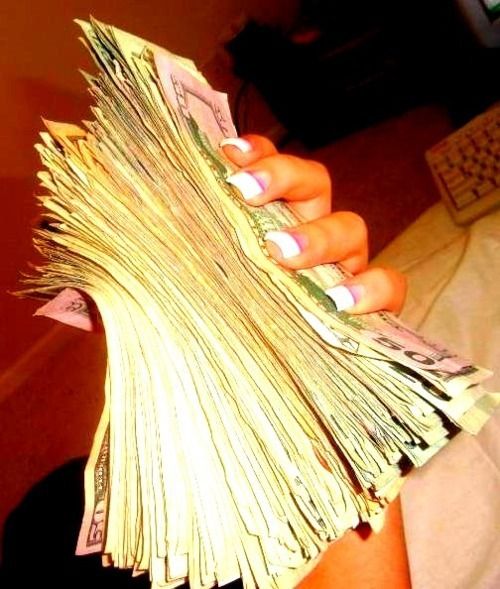
Can money be addictive, and if so, is that really a bad thing?
One might say that, like people who compulsively exercise, addiction to money has significant practical benefits. Keeping one’s focus on the bottom line and delaying gratification in order to create a more secure future is terrific…in balance. But are we always talking about addiction when we talk about a strong, healthy money awareness?
What’s the difference? Choice. In the minds of many of my clients, a valuable consideration becomes an obsessive knee-jerk reaction to money. When they fear being without money, it is not just about the money; it feels more than a little like death. That level of desperation, completely out of balance with the real consequences of being money-poor, at least temporarily, is in many ways identical to my heroin addicts’ long battles with giving up not only heroin, but the culture and the ritualistic trappings that accompanied it.
A girlfriend and I are paddling on our swimming noodles around Lake Travis, near Austin, many years ago. Bored with the yacht party we were invited to, we spy a man on his pride and joy, a classic vintage schooner, and he hails us on board. In the conversation which followed, it became terribly apparent how lonely he was, how abandoned he felt, how meaningless his life was…and how betrayed he felt by the money he’d accumulated over the years. After he spontaneously opined that the money wasn’t helping, we offered to take it off of his hands. We were joking, of course, but the look on his face compared favorably to a dog whose bone is threatened. Not happy. Nope. Not happy at all.
We left soon after.
Whether it’s alcohol or money, cigarettes or exercise, the item in question becomes a substitute for that which is necessary to sustain life. Usually, it’s a substitute for love, and the attention and concern that go with that healthy love. We’re not just talking about abusive families; many of my clients were rewarded financially by parents too busy or self-absorbed to give more attuned relational attention. Money became the dependable go-to when a sense of being rewarded was desired.
And when we want a dependable “hit” of pleasure, we go to a dependable source. That thrill, that “zing” we get when we make contact with currency, which goes beyond the relief of being able to pay the light bill, or invest in a profitable venture…in my opinion, that’s addiction. The desperation of being money-short, again extending past money as mere tool to the absence of money itself…again, addiction. And as with any addiction, the recognition of the wound, the absence of love and attention in more direct and appropriate forms, and the healing of that wound, diminishes money’s power over us.
What do you think?